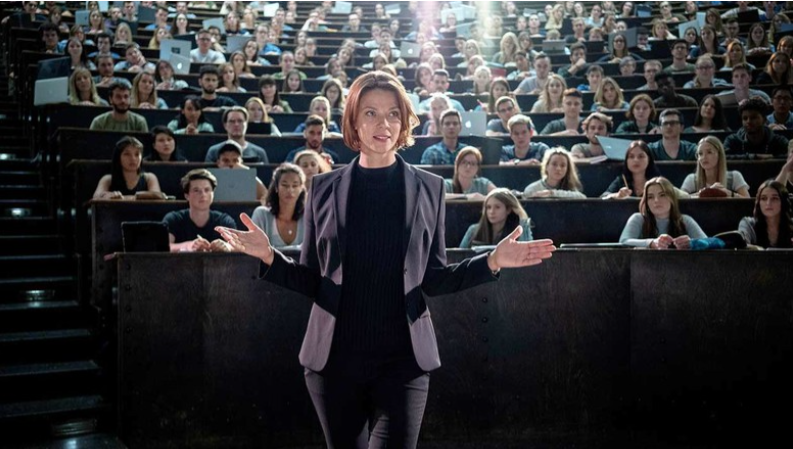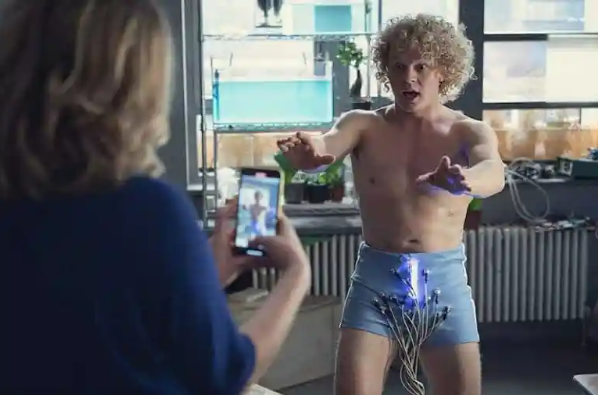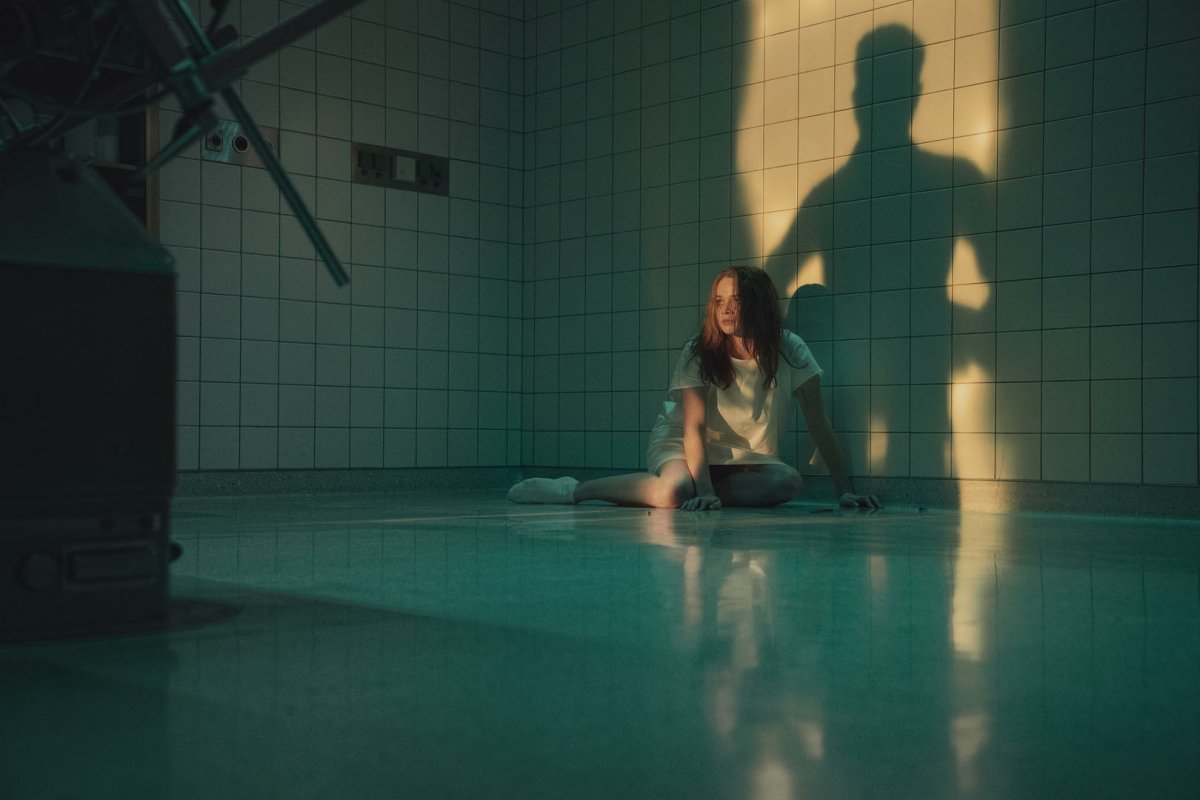Way back in August 2020, I had intended to write a review of the intriguingly-titled, German-produced Netflix series, Biohackers. Surely, I thought, this was a programme that calls to the itDf project; the very idea of ‘biohacking’ must make us think again about human bodies and our relationship to technology, to think about what it means to be human, or even posthuman.
I made some notes on the first couple of episodes. I finished the series. But I never wrote the review. I didn’t have much to say, to be honest. I have just finished leisurely watching the second series, which was released six months ago.
That I’m not intellectually engaged is not to say it’s a bad series. I enjoyed it; it’s a fun, well-acted, ‘techno-thriller’, as the official description has it. I would recommend it to you. But not because it has anything profound or insightful to say about technology, disability, body modification, or posthumanism.
What inspired me to finish the review and publish it now it was a recent blog on this site by our own Stuart Murray, on S.B. Divya’s Machinehood (‘A Little Bit of Everything’ – I highly recommend it to you if you haven’t already read it). Stuart and I have discussed often our shared interest in posthumanism; alas, too often we have also discussed our disappointment at how many times really promising, intelligent stories that seem to take up posthuman themes ultimately fail to deliver and retreat instead to a comfortable – and boringly predictable – humanist sanctuary. Stuart, who always writes so beautifully, puts it best when he says, ‘Machinehood unravels at the end, as do so many fictions that engage with posthumanist plate-spinning but cannot bring together their multiplicities into a coherent conclusion.’
And looking at Biohackers in detail, despite the futuristic title and sci-fi premise, the ideas behind the story are deeply traditional and conservative. Not only do they eschew the posthumanist implications of its subject matter; the series does exactly as we have come to expect: it completely retreats instead into a very more conventional humanism.
But this should not at all have come as a surprise. There is a deeply frustrating pattern of such stories, in film and in fiction, as Stuart shows, of pulling back from the consequences of the technologies that the stories are built around, retreating from premises that demand more courageous treatment.
So let’s look at Biohackers: The initial promise of the title is all but annihilated in the early scenes of the first episode. We are introduced to Professor Tanja Lorenz, the larger-than-life celebrity scientist that stands at the front of a lecture theatre full of worshipping undergraduates, and us all, explaining the amazing science behind biohacking, and the amazing promise that it represents for the evolution of the human species. While she starts with a promise for a radical new technologically-enhanced human species, there are already hints that her ambitious plans will take a dystopian turn.
But we’ve seen Lorenz before. She is a character cut from the classic mould, the archetypal mad scientist, so often populating our science fictions, driven by reckless narcissism. She appears looking every bit the direct descendant of Victor Frankenstein and Rotwang, the engineer behind the robot Maria in Fritz Lang’s 1927 masterpiece, Metropolis.

Synthetic biology, Lorenz explains, is the future of medicine, not because of what it can do for medicine, but because it can turn us ‘from creature to creators… We will make God obsolete,’ echoing Frankenstein. And she isn’t alone: both series of Biohackers are full of such hubristic characters: Arnold, Lorenz’s one-time partner (now suffering from dementia in a care home) insists he was only trying to do good by modifying healthy embryos for genetic experiments; Baron Wolfgang von Fürstenberg, who with that name could be nothing other than an evil mad scientist, insists that he is willing to make the ethical compromises that only those with the courage to exist beyond good and evil dare consider.
These tropes are so often repeated that we all by now know exactly what they mean: science and technology are dangerous. Human beings toy with God’s natural creation at their own peril.
On the other hand in Biohackers, we see that it isn’t just the over-reaching scientists that mess around with human beings as God intended us to be. We meet, Ole, the brilliant but eccentric undergraduate and his parade of risible schemes for improving on human biology. In the opening episode, we see him announcing that he has (inexpertly) put an NSF chip under his skin, so he can pay for things without getting his phone out. In another episode, Ole gives his friends a chemical extracted from deep-sea fish that makes them all see more clearly and brightly in the dark. In another, he appears half-naked with a series of brightly-lit electrodes attached to his groin and in another, he appears oddly dressed wearing a helmet covered in brightly-lit electrodes…

It is as if when confronted with the question, ‘What might our posthuman future look like?, mainstream fictions panic, dodge the question and retreat into the safe happy embrace of conservative, old fashioned Humanism. Even worse, too many fictions merely demonise (as Biohackers does with the allusions to the mad scientist) or trivialise (as Biohackers does with Ole) the threatening technology and thus re-inforces the Humanist world-view.
The most egregious examples of this, for me, can be seen in Steven Spielberg’s 2018 adaptation of Ernest Cline’s novel, Ready Player One. Despite presenting a near-future dystopian world, where poverty is everywhere and green spaces nowhere, there is an implicit (and sometimes explicit) judgment made about the people that retreat into virtual worlds of the OASIS: these poor human souls are not lost because they are poor, or because they live in an alienated, indifferent world controlled by corporations, but because they spend too long in virtual reality.
So, as with Biohackers, in this and so many other films that purport to be about the possibilities offered to us by new technology, the lesson is clear: technology is dangerous because it makes us less human. (Nevermind, for now, that there has never been a human being unimpacted by technology.)
Probably the most infuriating example of what I’m talking about is Christopher Columbus’s 1999 film, Bicentennial Man (a film for which I have a particular hatred; I’ll try to moderate my comments here). Robotics and AI advance in the timespan covered by this film to the point that, by the end, we are confronted with Andrew, a self-made, super-intelligent humanoid robot that is in every way superior to human beings. And yet, despite this technological advancement, human beings in the film remain completely unaltered, not just in their relationship to technology but in their worldview. In fact, at the film’s conclusion, the Humanist worldview of the characters in the film are completely justified and reinforced as Andrew capitulates to the Humanist tyranny and allows himself to die, just to be more ‘human’ in the eyes of the World Congress and their laws.
The messaging is clear: messing up human’s true nature with technology can never bring us happiness, and it is only by eschewing technology can we ever truly be ‘human’ in that single, solitary way that nature intended. So little has changed since Mary Shelley’s classic Frankenstein; despite our technological advances, we’re still stuck in those Romantic/Gothic humanist assumptions.
If you have any suggestions, of either more crushingly disappointing sci-fi films that perpetuate humanist mythologies, or of stories that really break the mould and give us an insight into what our post-human future (and present) might look like, post in the comments below.

